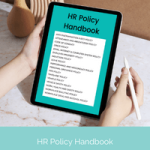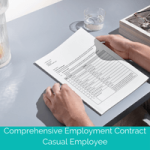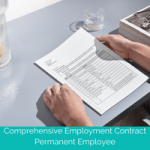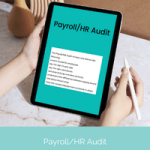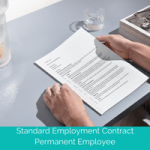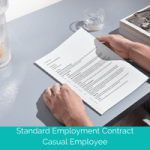Giving your employee an employment contract is a good idea. It sets out the conditions of employment like hours of work, salary /wages, start date and other details of their employment. It will also assist you to avoid any misunderstandings or disputes that may occur.
What is an employment contract?
It’s an agreement between an employer and their employee(s). It sets out the type of employment – full-time, part-time, or casual. It also sets out the specific terms and conditions of employment, for example, some contracts are for a fixed period of time.
When should I give my employee an employment contract?
You can’t force someone to sign or agree to a contract so it’s a really good idea to make sure the contract of employment is signed before your employee starts work with you. If an employee has already started work and then they start to question the terms and conditions, it’s more difficult to deal with the situation than if you had issued the agreement in advance.
Employment agreements can be issued in hard copy, by email or they can be issued through a cloud-based HR system where the new employee is given access to the system to enable them to receive all of their documentation and other induction paperwork. You can also send via a platform like AdobeSign or DocuSign.
Should an employment contract be in writing?
An employment contract in the form of a verbal agreement can also be legally binding, but the terms of the verbal contract are often a lot harder to prove without written evidence. For example, if a dispute arises and there is a disagreement about entitlements or what has been agreed to in relation to employment conditions, it’s hard to prove what was agreed upon.
What should I put in an employment contract?
A contract should be a record of the employee’s start date, salary, entitlements working days, termination of employment, and hours. It can also contain details about leave entitlements, resignation notice periods, confidentiality, restraint of trade, what Award or Agreement applies, protection of intellectual property, policies, any equipment provided. You can include references to the position description and the duties required of the position.
For a permanent employee, you can include information about leave entitlements, hours of work, start and finish times.
For casual employees, you can include information confirming that there is no guarantee of ongoing work, clearly state that the role is casual and a casual loading is paid.
If you decide not to provide someone with a written contract of employment, you are still required by law to provide all new employees with a copy of the Fair Work Information Statement. The Fair Work Information Statement gives details regarding rights under the National Employment Standards (NES).
In summary, it’s a really good idea to give your new team member an employment contract so their conditions of employment and details of salary and entitlements are clearly stated. It will also assist you to avoid any misunderstandings or disputes.
We can help you stop wasting time and money by providing expert on-demand HR services for an affordable monthly fee.
My HR Partner can help you with drafting your HR documents.
Check out our documents here:
https://www.myhrpartner.com.au/shop
For further expert advice on human resources or if you have any questions about anything HR related, get in touch.
Karen Hillen is your HR Partner, she helps businesses by providing HR support and advice services.
For the right HR support and advice, book a My HR Partner HR Advice call with Karen Hillen.
https://booking.myhrpartner.com.au/15minute-hr-advice-call
https://booking.myhrpartner.com.au/30minute-hr-advice-call
My HR Partner memberships provide 24/7 access to employment contracts, HR policies and documents, and HR advice calls. These services are tailored to the member’s needs and can be accessed on demand through phone or email for performance management issues, pay rates and Award advice.
Find out more about My HR Partner HR Hub membership here:

